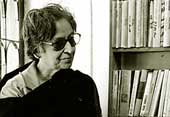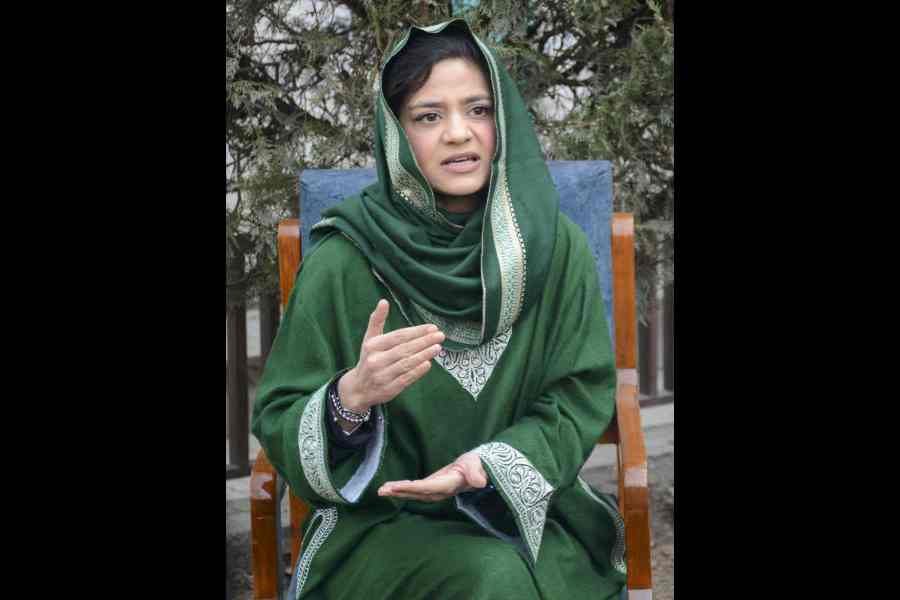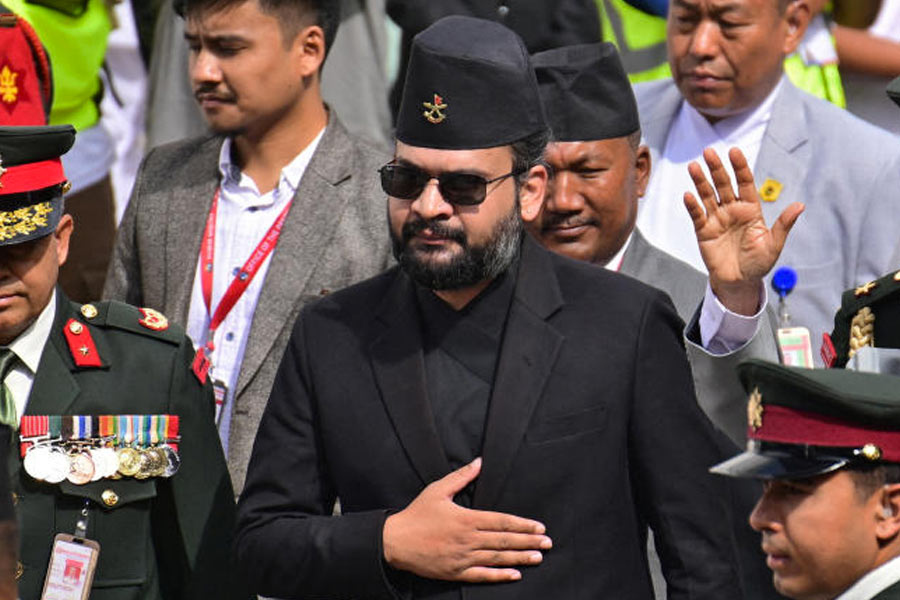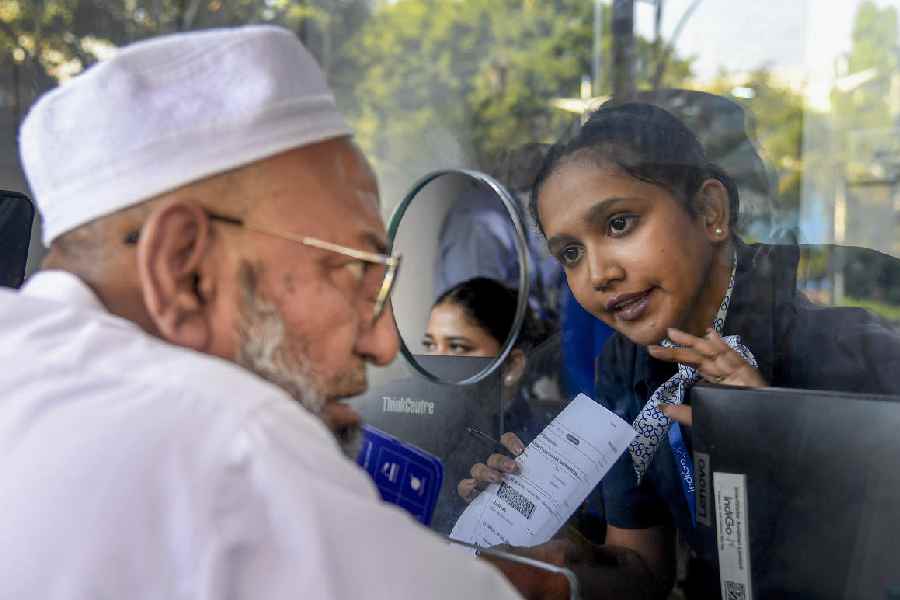|
|
| The past is another country |
I had known Amrita Pritam for over 60 years, and besides her live-in gentleman companion and her children, been closer to her than anyone else. I was the first to translate some of her works into English including her best known novel Pinjar (The Skeleton) and selections of her verse published in the brochure when she was given the Jnanpith award. However, when TV and radio channels asked me to pay tribute to her when she died on October 31, I firmly said no. Then I heard and read what others had to say about her. Patwant Singh in his usual haw-haw English spoke about her steadfast adherence to political principles. As a matter of fact, Amrita never bothered about politics and hardly ever read newspapers. Obituaries in newspapers repeated the same things about her life and work loaded as I their practice with superlatives. No one dared to mention of her human failings. It was regarded to be in bad taste.
Amrita?s father was a pracharak ? a preacher of the Sikh faith ? from Gujranwala where she was born. After the death of his wife, father and daughter moved to Lahore. Amrita grew into a pretty girl with almond-shaped eyes, fine features and a fair complexion. She was also petite, barely five feet tall. And precocious. She began composing poetry in her teens. Her earliest work was in praise of Sikh gurus and what they stood for. She was lauded for her work. Among her many admirers was Jagat Singh Kwatra, owner of the leading hosiery store in Anarkali Bazaar. He asked for her hand for his son, Pritam Singh. The offer was readily accepted. On marriage Amrita added her husband?s name to her own and became Amrita Pritam. I met her a couple of times in Lahore with other Punjabi writers, all of whom were infatuated by her. Chief among them Mohan Singh Mahir, then acknowledged as the best among younger poets. He claimed his affection was reciprocated. Amrita assured me it was not.
I got closer to Amrita Pritam 1947 when we migrated from Lahore to Delhi. She got a job in the Punjabi Service of All India Radio. It was about that time she decided to make a clean break with her past. She persuaded her husband to divorce her, leaving their son in her custody. She did not formally renounce Sikhism, but cut off her hair and took to smoking. It was also around this time that she composed her poem, Aej Akhaan Waris Shah Noon, addressed to the Sufi poet, Warris Shah.
Utth dard-mandaan dey dardiyaa talk apna Punjab/ Beyley laashaan vichhiyaan/ The lahoo da bharya Chenab (O sharer of stricken hearts/ Look at your Punjab/ Corpses are strewn in the field./ Blood flows in the Chenab.)
With this memorable lament, Amrita shot into fame in the Punjabi-speaking world, both Pakistani and Indian. She never looked back.
My first disappointment came when she won the Sahitya Akademi Award. She was a member of the selection panel. She cast the deciding vote in her own favour. I found it hard to digest, but said nothing. When she was served a warrant for something she had written about Sikhism, I agreed to accompany her. Nothing came of it. When Krishna Sobti took her to court for stealing the title of her autobiography, Zindaginamah, I appeared in as a defence witness. Other troubles came her way, I stood by her.
Amrita was not a highly educated woman, nor exposed to good writing in languages other than Punjabi. Nor sophisticated enough to add new dimensions to her own. She was besotted with Bollywood and believed getting one of her works accepted by a filmmaker was the ultimate in success. All her stories and novels were sob stuff and uniformly second rate.
When I translated Pinjar, I gave half the share of royalties due to me to her on condition that she would tell me about her love life. She conceded she had been in love with Sahir Ludhianvi and no one else. He came over to Delhi to meet her. It came to nothing. I told her that her love-life could be written at the back of a postage stamp. She used it as the title of her autobiography, Raseedee Ticket. About Imroze, the one who devoted most of his life to her, she had not much to say. He not only loved her, painted her eyes on doors and walls, and designed book jackets for her, but in the last few years of her life, when she was unable to move, looked after her. He gave me a line drawing of Warris Shah which I keep in my studio as an emblem of eternal love.
Much ado about mantras
I have memorized the principal power mantras of Hindus, Christians, Muslims and Sikhs by heart, but have not been able to work out why followers of these religions endow them with powers above other mantras. It is generally agreed that the Gayatri mantra is the most powerful Hindu invocation. I have translated it into English and often recited it in my half-sleep lest it escape my memory. But I also know passages from the Gita and the Upanishads which read as well, but are of secondary importance because Gayatri is the maha-mantra.
Among the Sikhs the most popular shabad asking for protection from harm begins with:
Taatee vaao na laagaee, Par-Brahma sharanaaee/ Chaugird hamaarey Raamkaar, dukh lagey na bhai
(No ill-winds touch me, the Lord Brahma is my protector/ Round me Lord Ram has drawn a protective line, No harm will come to me, brother).
For Christians it is the 23rd psalm. The two most popular verses of the Quran that appear in Muslim mausoleums are Sura Yaseen, which festoons the entrance gate, and Ayat-ul-Kursi, the throne verse. Of the two, Ayat-ul-Kursi is more popular. Many Muslims wear it in their amulets. I have one in Bidri and silver on my wall. I got a gold medallion from Tehran which both my daughter, Mala, and her daughter, Naina, wore in their necklaces when taking their exams. Neither knew what it meant but their Muslim friends told them it was very powerful. It said: ?There is no God, but Allah, the living, the self-subsisting, the eternal. No slumber nor sleep can seize Him. His are all the things in heaven and on earth. Who can intercede in His presence except as He permits? He knows the past, the present and the future. He cares equally for all; He in his knowledge grades his creations. His kingdom extends over the heaven and the earth; He is the guardian, He is the preserver. He is the Highest. He is Supreme.?
No doubt it is simply-worded. I know many other passages in the Quran which read as well, but have not understood why the throne verse is endowed with more power than others.











